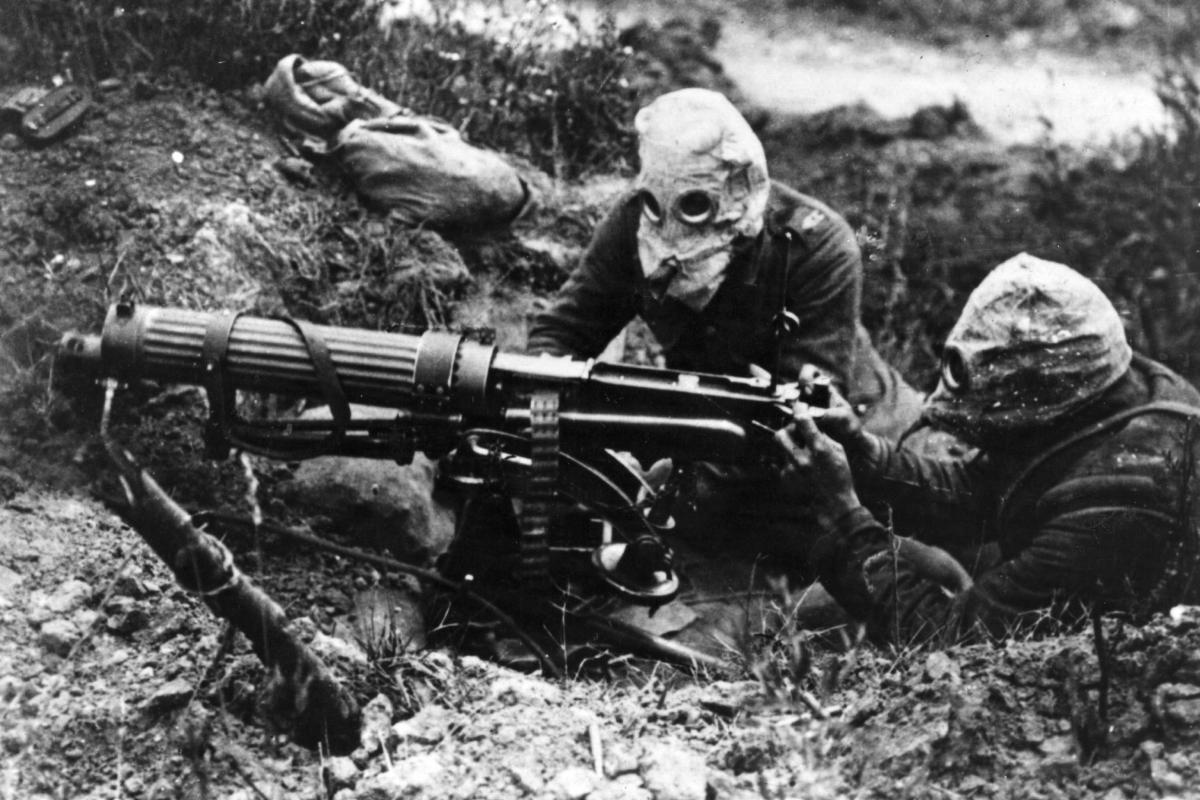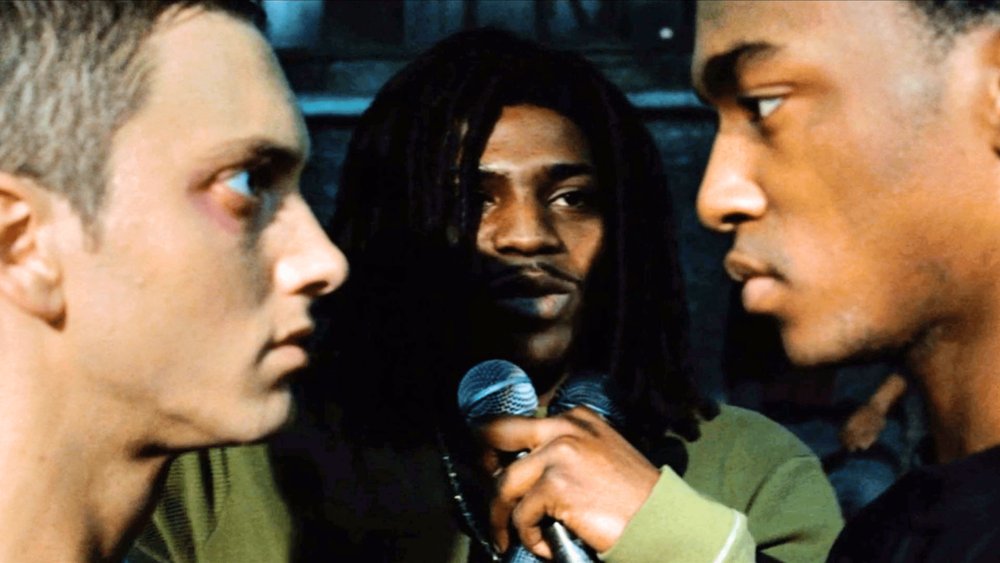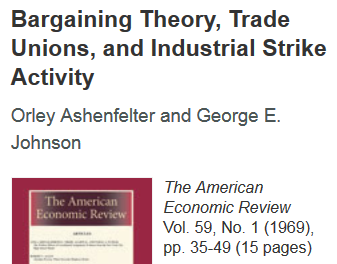Nuclear war almost happened in August 2017.
What does this teach us about the causes of war?
Answer: That we still don& #39;t really know why war happens.
[THREAD] https://www.washingtonpost.com/politics/2020/09/16/daily-202-us-came-much-closer-war-with-north-korea-2017-than-public-knew-trump-told-woodward/">https://www.washingtonpost.com/politics/...
What does this teach us about the causes of war?
Answer: That we still don& #39;t really know why war happens.
[THREAD] https://www.washingtonpost.com/politics/2020/09/16/daily-202-us-came-much-closer-war-with-north-korea-2017-than-public-knew-trump-told-woodward/">https://www.washingtonpost.com/politics/...
The idea is the following: since war is costly (think of all the millions of people Mattis feared would die in a  https://abs.twimg.com/emoji/v2/... draggable="false" alt="🇰🇵" title="Flagge von Nordkorea" aria-label="Emoji: Flagge von Nordkorea">
https://abs.twimg.com/emoji/v2/... draggable="false" alt="🇰🇵" title="Flagge von Nordkorea" aria-label="Emoji: Flagge von Nordkorea"> https://abs.twimg.com/emoji/v2/... draggable="false" alt="🇺🇸" title="Flagge der Vereinigten Staaten" aria-label="Emoji: Flagge der Vereinigten Staaten"> war), states have an incentive to "strike a bargain" that avoids war.
https://abs.twimg.com/emoji/v2/... draggable="false" alt="🇺🇸" title="Flagge der Vereinigten Staaten" aria-label="Emoji: Flagge der Vereinigten Staaten"> war), states have an incentive to "strike a bargain" that avoids war.
But this doesn& #39;t always happen...with devastating consequences
Bargaining theory is really useful for understanding why a deal isn& #39;t reached. Reasons include (i) beliefs that the other side is bluffing about resolve/acceptable deals, or (ii) unwillingness to believe that the other side can stick to a deal. https://www.cambridge.org/core/journals/perspectives-on-politics/article/exploring-the-bargaining-model-of-war/0CD52D9B2684E7485A97F32D648F4926">https://www.cambridge.org/core/jour...
And it treats the "onset of war" as a really, really, really bad "exit option" from bargaining.
States often avoid this exit option, but sometimes don& #39;t.
States often avoid this exit option, but sometimes don& #39;t.
Why can& #39;t the leaders find another type of costly action, such as economic sanctions? https://onlinelibrary.wiley.com/doi/full/10.1111/j.1747-7093.1999.tb00330.x?casa_token=BXgxjtWRUj4AAAAA%3A6DhXCIzq_hQk6Yw2ksncgYdUiAqvf7jQ8_Oe4QbJ7orNJexhk-kcbm6xMPlSewtIuscfmdlJvARsew">https://onlinelibrary.wiley.com/doi/full/...
Or diplomatic ostracization? https://www.amazon.com/Forceful-Persuasion-Coercive-Diplomacy-Alternative/dp/1878379143">https://www.amazon.com/Forceful-...
....or, I don& #39;t know, a rap battle?
In other words (and I know this is going to be controversial with folks), the bargaining model of war doesn& #39;t actually tell us why "war" happens.  https://abs.twimg.com/emoji/v2/... draggable="false" alt="🤔" title="Denkendes Gesicht" aria-label="Emoji: Denkendes Gesicht">
https://abs.twimg.com/emoji/v2/... draggable="false" alt="🤔" title="Denkendes Gesicht" aria-label="Emoji: Denkendes Gesicht"> https://abs.twimg.com/emoji/v2/... draggable="false" alt="🤯" title="Explodierender Kopf" aria-label="Emoji: Explodierender Kopf">
https://abs.twimg.com/emoji/v2/... draggable="false" alt="🤯" title="Explodierender Kopf" aria-label="Emoji: Explodierender Kopf">
I& #39;m not the first one to make this observation.
Erik Gartzke did years ago in @IntOrgJournal https://www.cambridge.org/core/journals/international-organization/article/war-is-in-the-error-term/45964C242DA8AFD93AFD2B1750FAF4D0">https://www.cambridge.org/core/jour...
Erik Gartzke did years ago in @IntOrgJournal https://www.cambridge.org/core/journals/international-organization/article/war-is-in-the-error-term/45964C242DA8AFD93AFD2B1750FAF4D0">https://www.cambridge.org/core/jour...
And Robert Powell wrote, "“The mechanisms are too general and too spare to explain particular outcomes in any degree of specificity.” https://www.amazon.com/Shadow-Power-Robert-Powell/dp/0691004579">https://www.amazon.com/Shadow-Po...
This really shouldn& #39;t be surprising since the bargaining model of war is really just an extension of the models of labor disputes/strikes
#metadata_info_tab_contents">https://www.jstor.org/stable/1811091?seq=1 #metadata_info_tab_contents">https://www.jstor.org/stable/18...
#metadata_info_tab_contents">https://www.jstor.org/stable/1811091?seq=1 #metadata_info_tab_contents">https://www.jstor.org/stable/18...
My critique isn& #39;t limited to bargaining theory.
One could also say the same about "The Steps to War" explanation for war: it highlights "risk factors" but not the "mechanism" https://oxfordre.com/politics/view/10.1093/acrefore/9780190228637.001.0001/acrefore-9780190228637-e-275">https://oxfordre.com/politics/...
One could also say the same about "The Steps to War" explanation for war: it highlights "risk factors" but not the "mechanism" https://oxfordre.com/politics/view/10.1093/acrefore/9780190228637.001.0001/acrefore-9780190228637-e-275">https://oxfordre.com/politics/...
Or the "Security Dilemma": arming yourself out of fear of others& #39; arms (for what ever reason that fear comes about) doesn& #39;t tell you when and why you start actually using those arms against one another (cc @JenniferMitzen) https://journals.sagepub.com/doi/abs/10.1177/1354066106067346">https://journals.sagepub.com/doi/abs/1...
Or, similar to the security dilemma, the "Spiral Model" (cc @AHKydd) https://www.cambridge.org/core/journals/world-politics/article/game-theory-and-the-spiral-model/3ED0EC9B80C83F4D10A1E55CA2EA5FD2">https://www.cambridge.org/core/jour...
So we need to bring in ancillary theories to explain why the shooting begins. These are numerous.
There is "Preventive War" https://www.tandfonline.com/doi/full/10.1080/03050629.2011.546716?casa_token=LsF_mLW0w9YAAAAA:Zc6zy9nH50COe7eOY2Q-Caz7JXoUHXpEHK3Z-0EnLLcRXEJpAQlSTqeGq6isasElTloKss1FQX0">https://www.tandfonline.com/doi/full/...
There is "Preventive War" https://www.tandfonline.com/doi/full/10.1080/03050629.2011.546716?casa_token=LsF_mLW0w9YAAAAA:Zc6zy9nH50COe7eOY2Q-Caz7JXoUHXpEHK3Z-0EnLLcRXEJpAQlSTqeGq6isasElTloKss1FQX0">https://www.tandfonline.com/doi/full/...
There is "Performative War" (cc @ahsanib) https://www.tandfonline.com/doi/full/10.1080/09636412.2019.1551567">https://www.tandfonline.com/doi/full/...
There is "Diversionary War" (cc @kyle_e_haynes) https://journals.sagepub.com/doi/full/10.1177/0738894215593723?casa_token=qsbvGBLXydMAAAAA%3AaSVJ0BDnw-joASpepaExrcCRmT0kp9999Zelg3ftqkjmd41_QSlxtjfkd1edmw55Jjcq3O3rk5A">https://journals.sagepub.com/doi/full/...
There is psychological bias, namely "overconfidence"
https://www.journals.uchicago.edu/doi/full/10.1111/j.1468-2508.2006.00382_13.x?casa_token=6p-bbpTZRioAAAAA:JRW16wRQj8L2nZrDHtoJs0orFbgOWgUAFzMaAjFvkgvVQg7myD4Y0exzjKdtFtIfW5q7DG_Riw">https://www.journals.uchicago.edu/doi/full/...
https://www.journals.uchicago.edu/doi/full/10.1111/j.1468-2508.2006.00382_13.x?casa_token=6p-bbpTZRioAAAAA:JRW16wRQj8L2nZrDHtoJs0orFbgOWgUAFzMaAjFvkgvVQg7myD4Y0exzjKdtFtIfW5q7DG_Riw">https://www.journals.uchicago.edu/doi/full/...
In short, we are fortunate that war was avoided in August 2017. The missiles of August 2017 could have been far more devastating than the guns of August 1914.
But why one August ended in "peace" and the other in "war" is still a puzzle to international relations scholars.
[END]
But why one August ended in "peace" and the other in "war" is still a puzzle to international relations scholars.
[END]

 Read on Twitter
Read on Twitter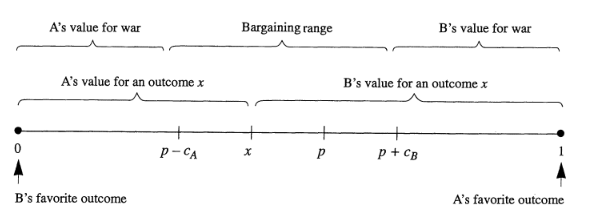
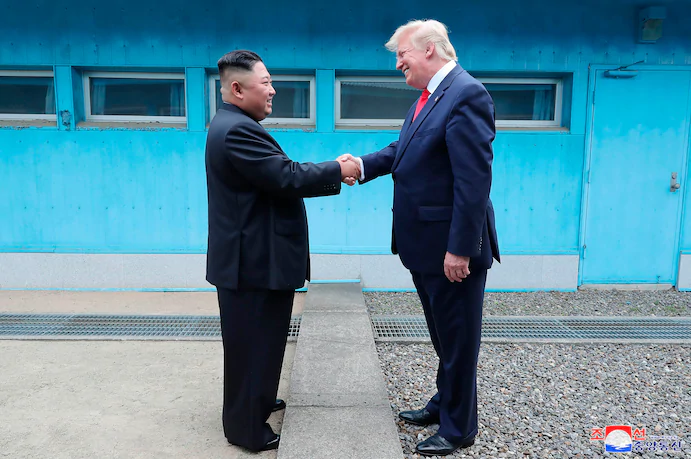 https://abs.twimg.com/emoji/v2/... draggable="false" alt="🇺🇸" title="Flagge der Vereinigten Staaten" aria-label="Emoji: Flagge der Vereinigten Staaten"> war), states have an incentive to "strike a bargain" that avoids war." title="The idea is the following: since war is costly (think of all the millions of people Mattis feared would die in a https://abs.twimg.com/emoji/v2/... draggable="false" alt="🇰🇵" title="Flagge von Nordkorea" aria-label="Emoji: Flagge von Nordkorea">https://abs.twimg.com/emoji/v2/... draggable="false" alt="🇺🇸" title="Flagge der Vereinigten Staaten" aria-label="Emoji: Flagge der Vereinigten Staaten"> war), states have an incentive to "strike a bargain" that avoids war." class="img-responsive" style="max-width:100%;"/>
https://abs.twimg.com/emoji/v2/... draggable="false" alt="🇺🇸" title="Flagge der Vereinigten Staaten" aria-label="Emoji: Flagge der Vereinigten Staaten"> war), states have an incentive to "strike a bargain" that avoids war." title="The idea is the following: since war is costly (think of all the millions of people Mattis feared would die in a https://abs.twimg.com/emoji/v2/... draggable="false" alt="🇰🇵" title="Flagge von Nordkorea" aria-label="Emoji: Flagge von Nordkorea">https://abs.twimg.com/emoji/v2/... draggable="false" alt="🇺🇸" title="Flagge der Vereinigten Staaten" aria-label="Emoji: Flagge der Vereinigten Staaten"> war), states have an incentive to "strike a bargain" that avoids war." class="img-responsive" style="max-width:100%;"/>


